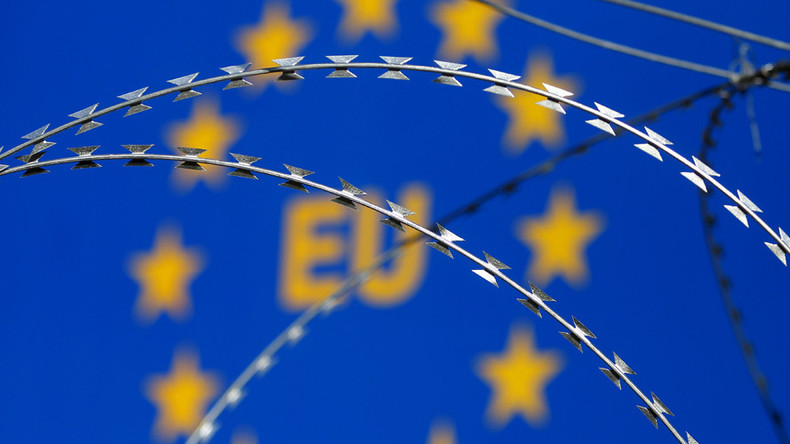
By Alexander Men
(Opinion) Since the end of February, the US, the European Union and many other countries have imposed tough sanctions on Russia in order to respond to Russia’s invasion of Ukraine and force Moscow to back down.
For its part, Russia has responded with countermeasures.
One consequence of this sanctions war is the worsening of the energy crisis in Europe, which could have catastrophic consequences for Germany and, therefore, for the entire EU.
Also Read: Check out our coverage on curated alternative narratives
In this regard, for example, the situation regarding the energy supply of Germany, whose successful economic model is mainly based on cheap energy sources from Russia, had already deteriorated significantly during the summer after the Nord Stream 1 gas pipeline, which at the time brought most of the Russian gas directly to the Federal Republic, could not be put into operation after the repair work.

Things turned critical, however, after the pipeline in question suffered severe damage due to an attack in September and was apparently out of service for an extended period.
As a result, gas imports from Russia have fallen by more than 60 percent, which has hurt prices.
The panic created among German consumers revealed the true importance of Russian gas supplies and showed what sanctions against Russia meant for Germany and other EU countries.
The current outlook is this: The longer the sanctions last — ie, the longer cheap Russian gas imports stay away — the worse things will get.
An improvement in the situation largely depends on when the EU and Russia normalize their trade relations again.
RETHINKING IN FRANCE
More and more European citizens and senior politicians of EU countries are becoming aware of this fact.
For example, France’s Economy Minister Bruno Le Maire, who in early March had called for a “total economic and financial war against Russia” and threatened Russia with a collapse of its economy, has radically changed the rhetoric of his regarding the sanctions.
In late August, according to Turkish newspaper Anadolu, Le Maire warned that a complete ban on Russian gas exports to France could damage the country’s economy in light of the coming winter months.
In early October, the minister became clear publicly for the first time about the sanctions and specifically the role of the United States.
As Politico magazine reports, Le Maire told the French parliament on Monday that Europe should not submit to US “dominance” because it was just becoming more and more dependent on US liquefied natural gas (LNG).
“We must not allow the conflict in Ukraine to lead to American economic dominance and a weakening of Europe,” the politician said.
In addition, he accused the US of raising LNG prices due to energy shortages and called for a “more balanced economic relationship on the issue of energy” between Americans and Europeans.
“We cannot accept that our American partner sells its LNG at four times the price it sells to its own companies,” Le Maire said.
With this, the French minister addresses a critical issue that Europeans have tried to ignore.
While Russia is perfectly capable of functioning economically, even without a European market, sanctions have proven that Europe is in a rut without Russian resources.
Germany continues to maintain a clear line
GERMANY REMAINS BAD
While a review is being made in France to overcome the energy crisis, Germany continues to maintain a stubborn attitude.
For example, German Chancellor Olaf Scholz continues to hold Putin solely responsible for the difficult economic situation in Europe.
According to Deutschlandfunk radio, Scholz told the Bundestag in a government statement at the start of the EU summit last Thursday that Putin was speculating “on our weakness”.
However, he said that the Russian president was wrong and that he would not achieve his war aims because Germany and Europe were standing together.
Putin also miscalculated with blackmail by cutting gas supplies, the chancellor said.
Scholz had recently stated regarding the war in Ukraine, among other things, according to the Redaktionsnetzwerk Deutschland portal, that the Russian head of state was leading a larger crusade against the West with his attack on Ukraine.
According to the statement, Putin was fighting against liberal democracy, an international order based on rules, freedom and progress.
“This is why Ukraine must stand its ground,” Scholz said, assuring that Ukrainians would stand by Russia as long as necessary.
He also asked that unity on fundamental values not be forgotten in Germany and with international partners in the face of possible differences on individual issues.
Vice Chancellor and Economy Minister Robert Habeck also sees the cause of the energy crisis and high inflation as Putin and his intervention in Ukraine rather than the German government’s sanctions policy.
The solution, in Habeck’s opinion – was a defeat of the Russians on the battlefield.
“Putin must not win. Whatever concerns us, Putin must not win. Neither on the battlefield, nor in the economic war against Europe and Germany”, said the minister at the last conference of the Green Party in Bonn.
Regarding the economic consequences of the conflict with Russia, Habeck knows that the coming winter will be tough “for all of Germany.”
But someone will be stronger despite the problems and will grow from it “as a party, as Germany, as Europe, to which Ukraine belongs”, said the politician.
Join us on Telegram: t.me/theriotimes



